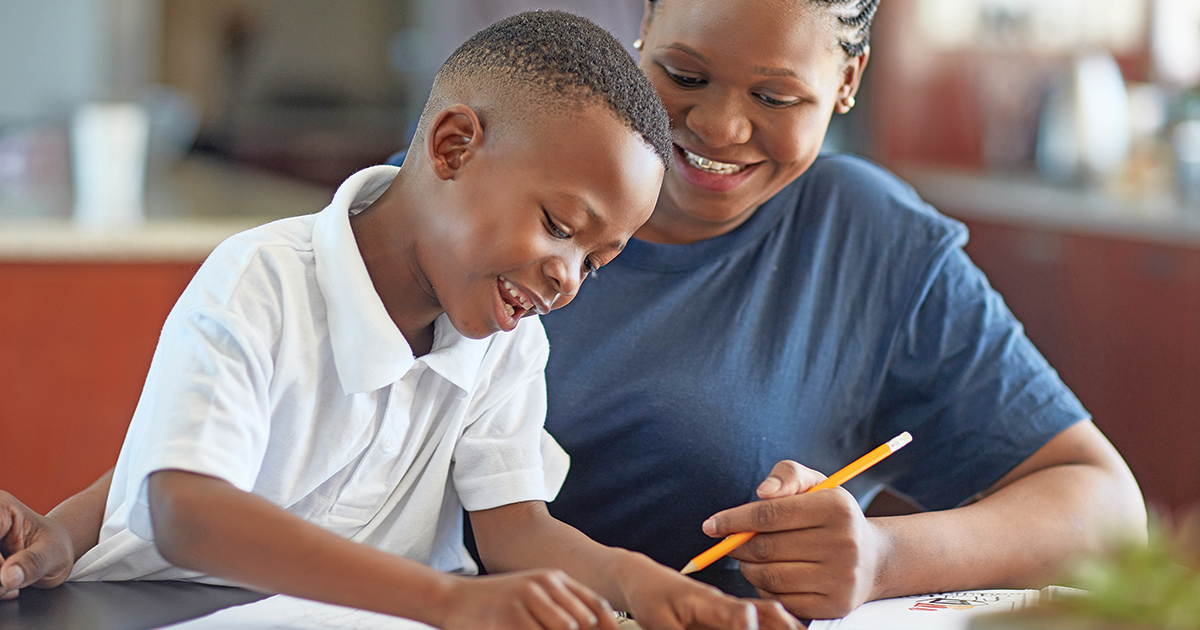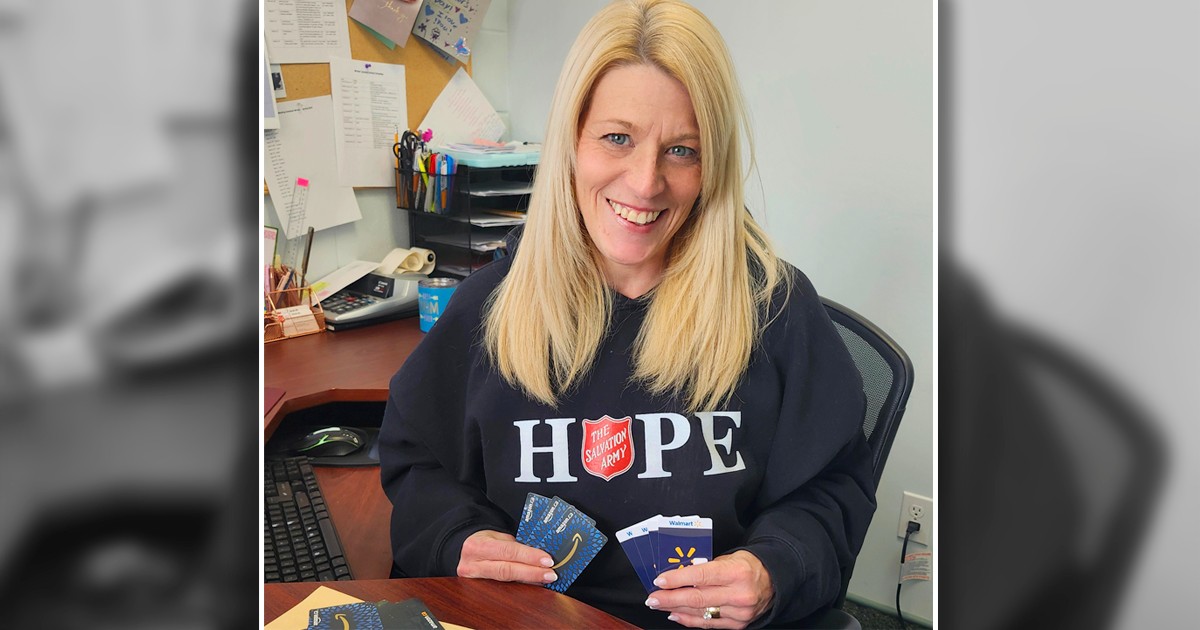During the COVID-19 pandemic, thousands of parents were faced with school closures. Suddenly, their children’s education became their responsibility.
“I can’t be their mother and teacher at the same time,” said a friend of mine, overwhelmed and exasperated. How could I help? And then I thought of Sue and George.
No Degree Required
Faced with a major life transition, the couple decided not to enrol their children in school until they found a permanent home. Sue would home-school.
“For one year, at the most,” she says, “but we loved it so much, no one wanted to go to school.” Racheal was in Grade 4, John in Grade 2, Meghan in kindergarten and Lora in preschool. Today, their daughters hold graduate degrees, and John works in the family business.
“Our typical day?” Sue’s memories go back a decade or two. “Breakfast at 8:30 a.m., school at nine. The kids would be done at 11. You can get six hours of school done in two, because you see immediately if your child understands the concept or not, and you are there to help.”
Sue holds a bachelor of science and physiotherapy. “But that doesn’t matter. A parent doesn’t need a degree to do this,” she adds. “Perhaps high school, if I didn’t understand, I’d send them to school, but up to Grade 6, any adult should be able to teach their children.”
Flexible Teaching
Curriculum makes all the difference. “First, I taught them to read, but once they knew how, the only time I taught them was when they said; ‘Mom, I don’t get this.’ ”
The family did not jump into home-schooling, hoping for the best. “I made a schedule for the entire year,” Sue continues. “Two hundred days for each child, for each subject.” The lesson plans were placed at the front of their binders.
This gave the home-schoolers the freedom to do any subject they chose. If they wanted to do all their math on Monday, they could. The only rule was that everything had to be done by Friday. “We taught them independence, responsibility and self-discipline,” explains Sue. “It was up to them to finish their work. If they didn’t, they couldn’t participate in a fun activity on Friday afternoon, until they completed all their lessons.”
Knowing the children’s learning styles gives home-schooling parents a definite advantage. “John was so active as a boy,” Sue recalls. “The girls would sit and study.” But it wasn’t the same for him. “When I saw he was getting frustrated, I would let him go outside for 10 to 15 minutes, then I’d call him in. It worked.”
A Fair Shake
But home-schooling goes far beyond math and science. Social development is a huge part of education.
Sue had read Growing Kids God’s Way, by authors Gary and Anne Marie Ezzo, which talked about first-time obedience, which means a child obeys a parent’s instruction the first time, no questions asked.
She discussed the idea with her husband, and they put it to practice. “Because we expected first-time obedience, it was up to me and George never to exhaust them, agitate them or treat them unfairly.” This made it easy on the kids, as the family developed an extraordinary level of mutual respect.
“I can’t take credit for any of this,” Sue says. “This is all God’s grace. He put the right people in my path.
“Life skills are so important,” she adds. “Everyone had chores. We took turns and kept it fair. And the children learned.”
Lifetime Lessons
Sue’s advice for parents considering home-schooling?
· Schedule your day. “Get the kids involved. Ask what they would like to do after they have finished the work. Make it special and rewarding. Lora loved art and therefore we enrolled her in advanced art classes.”
· Incorporate life skills into learning. “Teach the kids to make beds and clean their room. Take the time to learn together. As a parent, explore that world. This is an amazing time to bond with your children.”
· Be fair. “Never favour one child over the other. Children have a great sense of justice; do not exasperate them. It’s all about give and take, balancing work and play, but most of all it is about love.”
Simple principles such as “We take good care of things that God has given us” or “Love your neighbour as yourself” will stay with your children for a lifetime, just as math, reading and writing. Home-schooling isn’t only about homework and good grades; it’s about nurturing the next generation, fostering social skills and coaching children as they grow into godly people who are ready to do good in this world.
“I can’t be their mother and teacher at the same time,” said a friend of mine, overwhelmed and exasperated. How could I help? And then I thought of Sue and George.
No Degree Required
Faced with a major life transition, the couple decided not to enrol their children in school until they found a permanent home. Sue would home-school.
“For one year, at the most,” she says, “but we loved it so much, no one wanted to go to school.” Racheal was in Grade 4, John in Grade 2, Meghan in kindergarten and Lora in preschool. Today, their daughters hold graduate degrees, and John works in the family business.
“Our typical day?” Sue’s memories go back a decade or two. “Breakfast at 8:30 a.m., school at nine. The kids would be done at 11. You can get six hours of school done in two, because you see immediately if your child understands the concept or not, and you are there to help.”
Sue holds a bachelor of science and physiotherapy. “But that doesn’t matter. A parent doesn’t need a degree to do this,” she adds. “Perhaps high school, if I didn’t understand, I’d send them to school, but up to Grade 6, any adult should be able to teach their children.”
Flexible Teaching
Curriculum makes all the difference. “First, I taught them to read, but once they knew how, the only time I taught them was when they said; ‘Mom, I don’t get this.’ ”
The family did not jump into home-schooling, hoping for the best. “I made a schedule for the entire year,” Sue continues. “Two hundred days for each child, for each subject.” The lesson plans were placed at the front of their binders.
This gave the home-schoolers the freedom to do any subject they chose. If they wanted to do all their math on Monday, they could. The only rule was that everything had to be done by Friday. “We taught them independence, responsibility and self-discipline,” explains Sue. “It was up to them to finish their work. If they didn’t, they couldn’t participate in a fun activity on Friday afternoon, until they completed all their lessons.”
Knowing the children’s learning styles gives home-schooling parents a definite advantage. “John was so active as a boy,” Sue recalls. “The girls would sit and study.” But it wasn’t the same for him. “When I saw he was getting frustrated, I would let him go outside for 10 to 15 minutes, then I’d call him in. It worked.”
A Fair Shake
But home-schooling goes far beyond math and science. Social development is a huge part of education.
Sue had read Growing Kids God’s Way, by authors Gary and Anne Marie Ezzo, which talked about first-time obedience, which means a child obeys a parent’s instruction the first time, no questions asked.
She discussed the idea with her husband, and they put it to practice. “Because we expected first-time obedience, it was up to me and George never to exhaust them, agitate them or treat them unfairly.” This made it easy on the kids, as the family developed an extraordinary level of mutual respect.
“I can’t take credit for any of this,” Sue says. “This is all God’s grace. He put the right people in my path.
“Life skills are so important,” she adds. “Everyone had chores. We took turns and kept it fair. And the children learned.”
Lifetime Lessons
Sue’s advice for parents considering home-schooling?
· Schedule your day. “Get the kids involved. Ask what they would like to do after they have finished the work. Make it special and rewarding. Lora loved art and therefore we enrolled her in advanced art classes.”
· Incorporate life skills into learning. “Teach the kids to make beds and clean their room. Take the time to learn together. As a parent, explore that world. This is an amazing time to bond with your children.”
· Be fair. “Never favour one child over the other. Children have a great sense of justice; do not exasperate them. It’s all about give and take, balancing work and play, but most of all it is about love.”
Simple principles such as “We take good care of things that God has given us” or “Love your neighbour as yourself” will stay with your children for a lifetime, just as math, reading and writing. Home-schooling isn’t only about homework and good grades; it’s about nurturing the next generation, fostering social skills and coaching children as they grow into godly people who are ready to do good in this world.










Leave a Comment